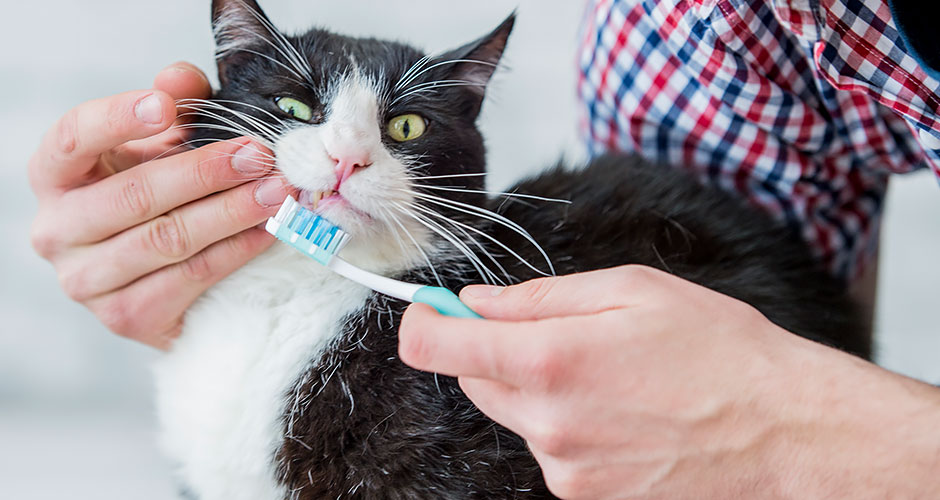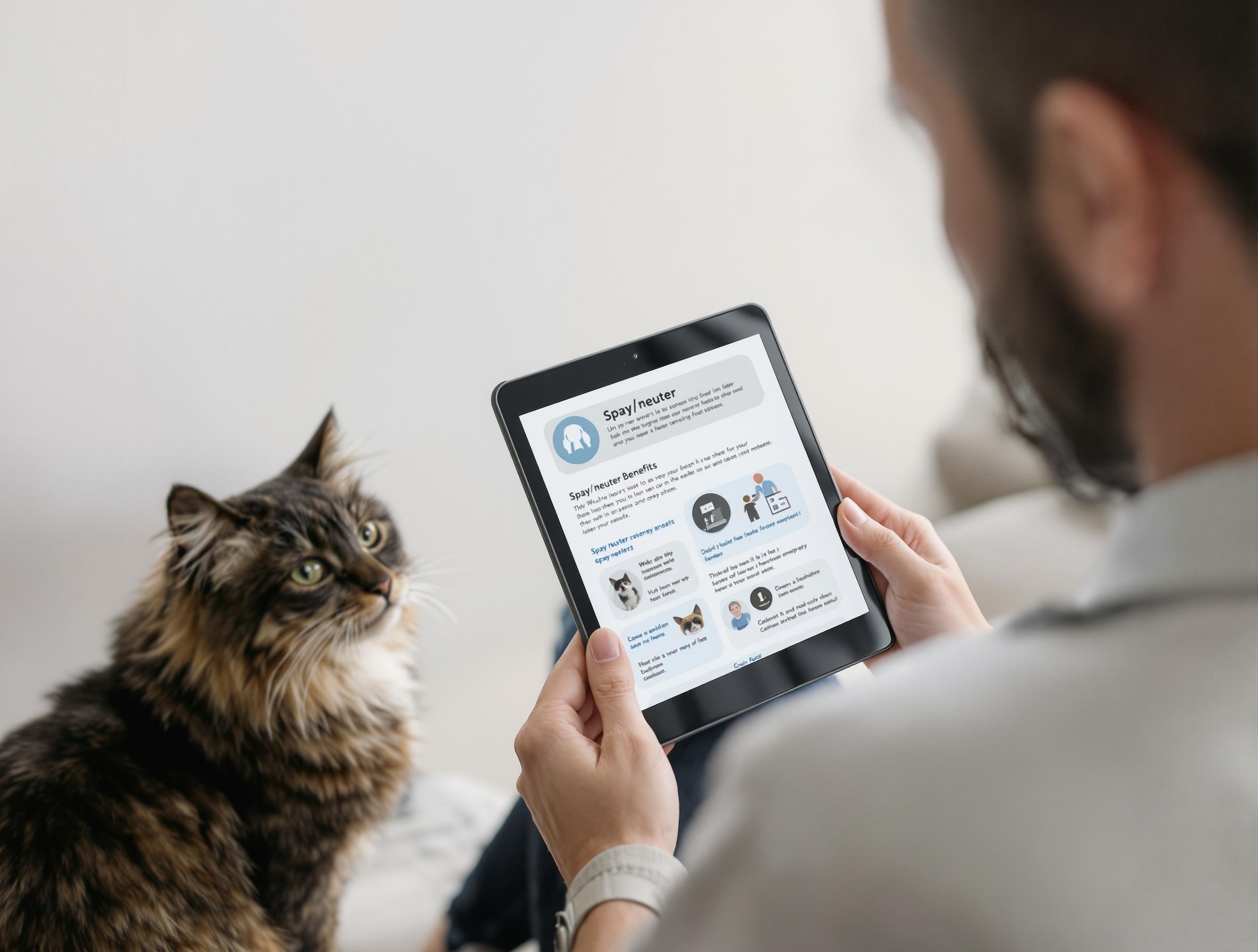Do you brush your cat’s teeth every day? According to a poll conducted by Royal Canin, around 75% of cat parents admit that they do not brush their cat’s teeth on a regular basis. While daily brushing is the best way to prevent dental disease, it can be difficult to get cats to comply.
Thankfully, there are many ways to keep your cat’s mouth clean and healthy. While these techniques are not a substitute for daily brushing, they can make a significant difference in your cat’s risk for developing dental disease.
- Give your cat dental treats. Dental treats for cats usually have a rough outer surface, designed to help break down plaque as your cat chews. They may also contain functional ingredients that can help fight oral bacteria. Look for dental cat treats that have earned a seal of approval from the Veterinary Oral Health Council. Products marked with the VOHC have been tested through clinical trials to meet guidelines set by the council.
- Infuse your cat’s drinking water. A dental water additive helps rinse away plaque and bacteria every time your cat takes a drink of water. They’re easy to use, just add a small amount to your cat’s water bowl according to the package directions.
- Use brushless cat dental products. When you brush your cat’s teeth, the brushing action helps break down plaque before it can harden and form tartar. If you’re unable to brush daily, though, applying cat toothpaste, dental gel, or dental spray to the surface of your cat’s teeth can have a similar effect without the added stress. Simply apply with a piece of gauze wrapped around your finger, a finger brush, or directly to the surface of your cat’s teeth, or as recommended on the product packaging.
- Feed a dental diet. Dry cat food has a rough surface that can help break down plaque. Dry food formulated for dental health has an enhanced texture and functional ingredients that help fight plaque and oral bacteria. You may still opt to feed wet food for hydration, while also offering dental dry cat food to help protect dental health.
- Encourage your cat to play with toys. Biting, carrying, and gnawing on toys may help protect your cat’s dental health. These actions can help strengthen your cat’s jaw and gums, wear away plaque, and contribute to overall better oral health.
- Bring out the catnip. Dried catnip is derived from the catnip plant, an herb that’s in the mint family. Like other minty herbs, catnip has antimicrobial effects and a fresh, clean scent. Chewing on catnip can potentially improve your cat’s oral health while leaving their breath fresh and minty.
- Schedule annual dental cleanings. Whether you brush, use dental additives, treats, or other ways to manage your cat’s dental hygiene at home, professional dental cleanings from your veterinarian are important for your cat’s oral health. During a dental visit, your veterinarian will use x-rays to detect and treat issues that may be hidden beneath the gumline.




